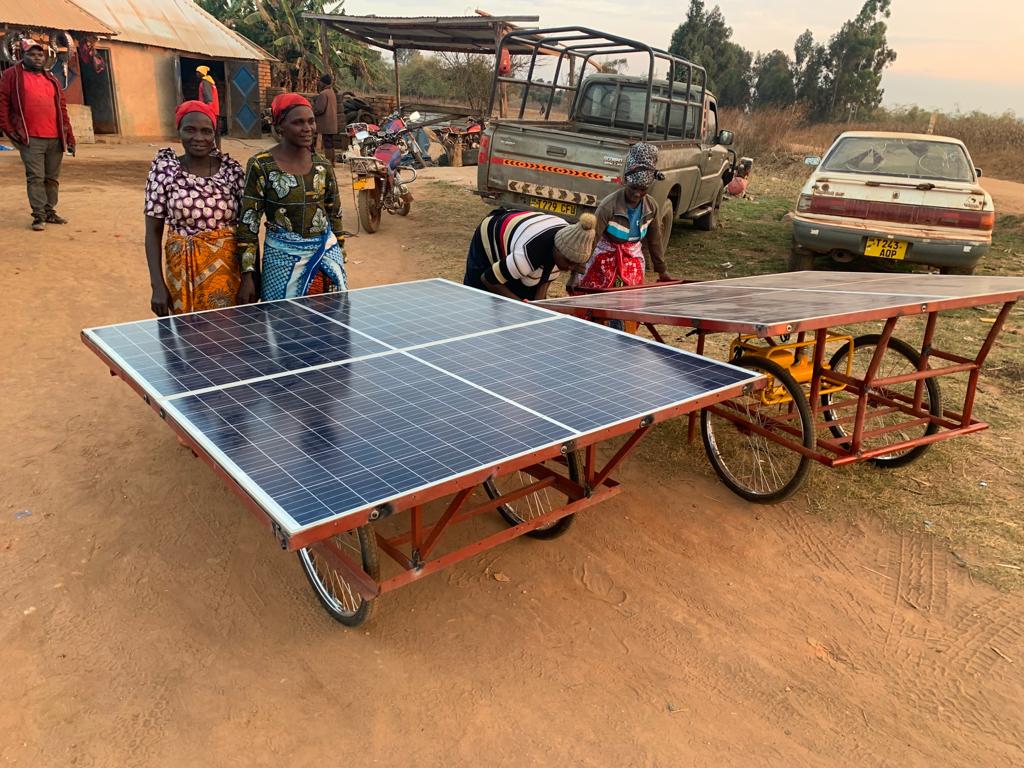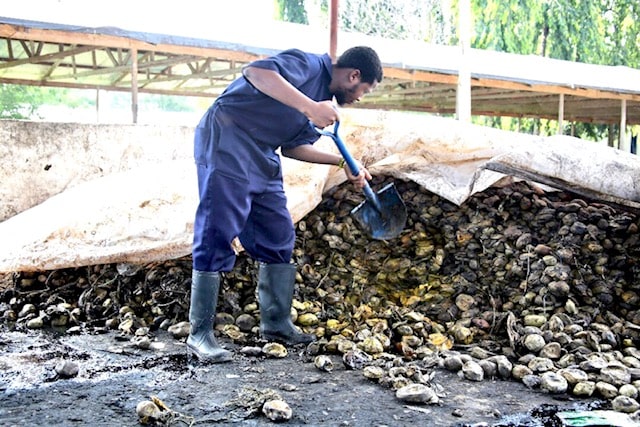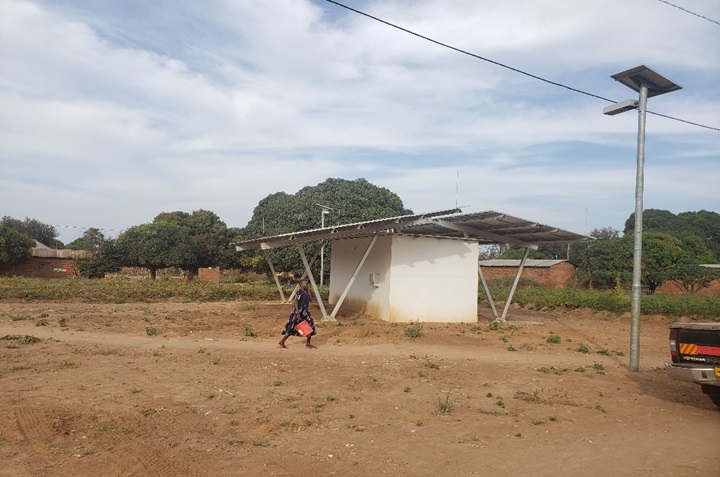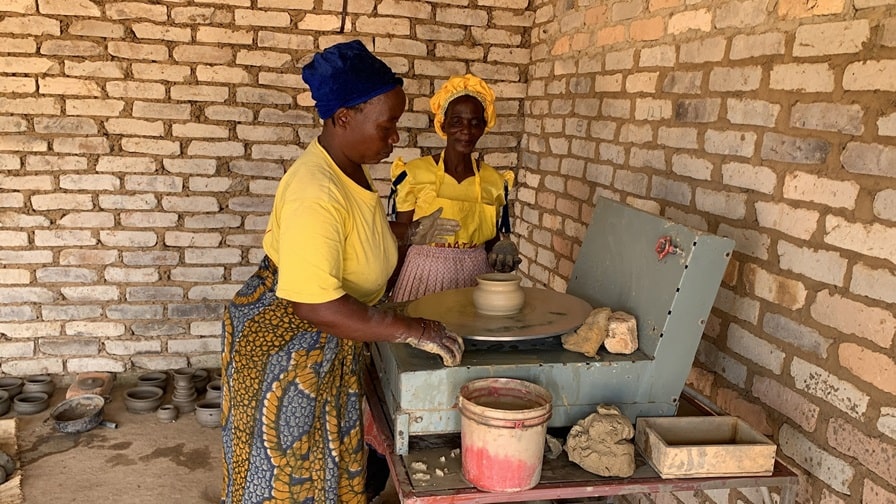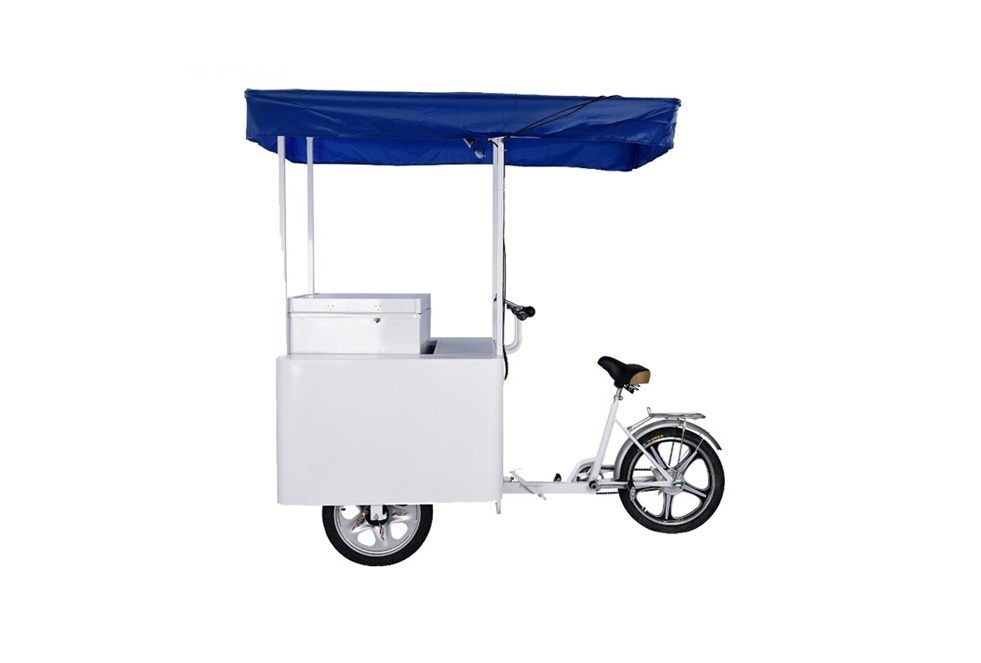- It supports irrigation farming and saved farmers from long lasted troubles.
- Helped to increase employment, productivity and food security.
Iringa. For decades, farmers in Lupembe Lwa Senga village in Iringa region had relied on the traditional farming system for their livelihoods. Apart from using hand hoes, animal plows, they would wait for the rain to irrigate their crops.
For small plots like gardens, they would use buckets or recently fuel-powered water pumps for irrigation.
“We started irrigation farming as a group in1999, by that time we were using a fuel-powered pump with the cost of 200,000 for buying petrol to irrigate all five acres a day, it was terrible,” Gabriel Mmewa, farmer in Lupembe Lwa Senga said. .
With outdated oil pump machines driving the irrigation process, he said the cost of production soared, leaving the farmers trapped in a cycle of diminishing returns.
However, as the demands of a growing population and the uncertainties of rains, the need for innovation became apparent.
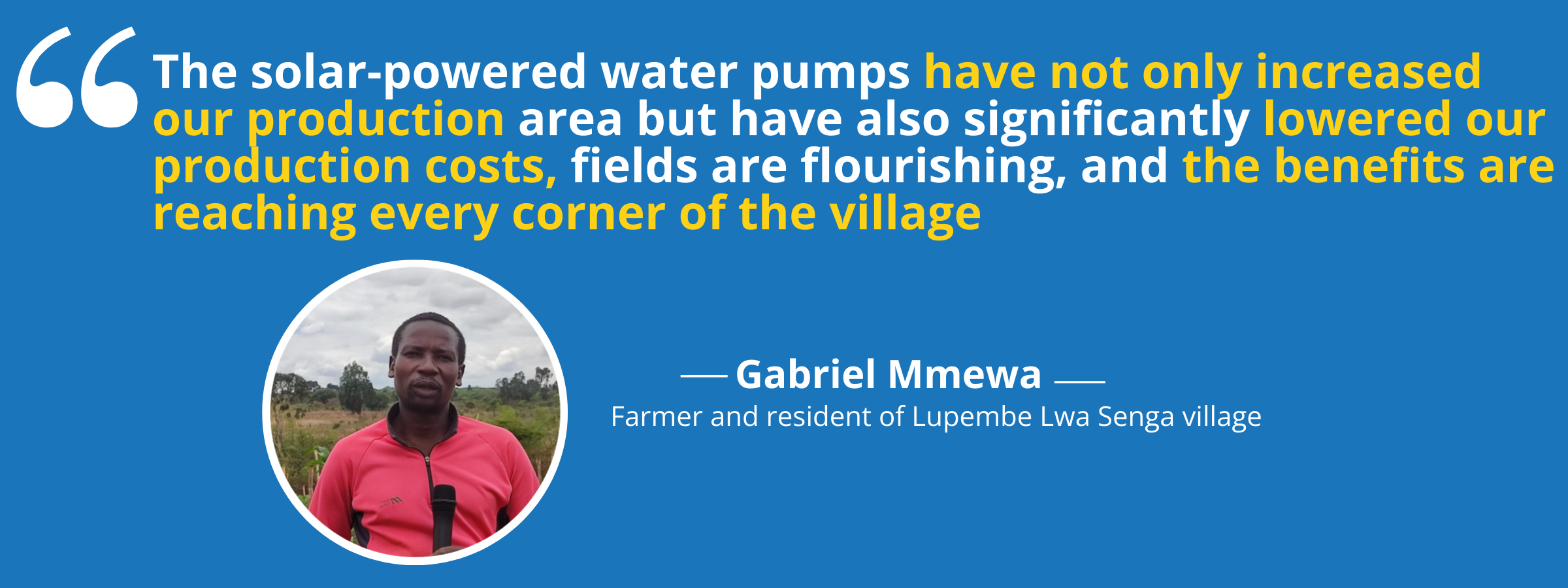
As part of improving agriculture, Elico Foundation, a Non-Government Organization (NGO) dedicated to advancing renewable energy in rural areas, provided Mmewa’s group in Lupembe Lwa Senga with a solar-powered water pump to enhance productivity and food security.
Tanzania is among the countries in Africa with few farmers who apply modern irrigation systems and the solar-powered water pumps pose a breakthrough to small scale farmers who are currently facing unpredictable rainfall.
The National Sample Census of Agriculture 2019/20 shows that the majority of small scale farmers are using traditional methods of farming with approximately 2 households in every 100 (1.8 percent) surveyed use water pumps while only 1.6 percent uses sprinklers with poverty contributing largely to the situation.
“The solar-powered water pumps have not only increased our production area but have also significantly lowered our production costs, fields are flourishing, and the benefits are reaching every corner of the village,” Mmewa, who leads a group of 16 people in the irrigation scheme, said.
According to Mmewa, they’ve tripled the production by expanding the area from three acres to ten acres, but also the cost reduction enabled them to triple the income after selling crops, and the money used to solve members’ problems including building houses, paying school fees and buying land.
How does the technology work?
More than 20 solar panels provide electricity energy which enables the pull water from the dam and push them to the water tank which is able to store 50,000 liters of water at once.
When the tank is full, water is now released for irrigation activities, whereas in Songambele farming schemes they opted to use drip irrigation style, saying it is the best way for irrigation and water saving despite the pump being able to pump up to 100,000 liters a day.
Fostering economic growth and employment
With increased efficiency and reduced production costs, Lupembe Lwa Senga’s fields expanded, yielding a diverse range of crops. This surplus not only guarantees food security but also promises economic prosperity for the village.
Crucially, the solar-powered revolution has led to an upswing in employment opportunities, particularly for the youth.
Sultani Kimbe, a member of Songambele group, told Nukta Habari that the solar powered pump is a “game changer” in his life.
“My life has changed a lot, I’ve managed to buy a piece of land where I cultivate during the rainy season, but also I’m now owning my own motorbike, and I’m having plans to marry soon, this is because of what we got from farming,” Kimbe said while smiling.
The agricultural sector’s demand for skilled workers has reversed the trend of migration, with the younger generation finding purpose and livelihoods within their own community.
Their group not only benefited its own members, sometimes they provided temporary jobs to other people in the village to do several tasks including harvesting and spraying pesticides, the act which helps to reduce unemployment rate in the village.
Villagers in Lupembe Lwa Senga have no issues with food at least for now since Songambele group grows food crops such as maize, and veggies like peas, tomatoes, cabbage and onions.
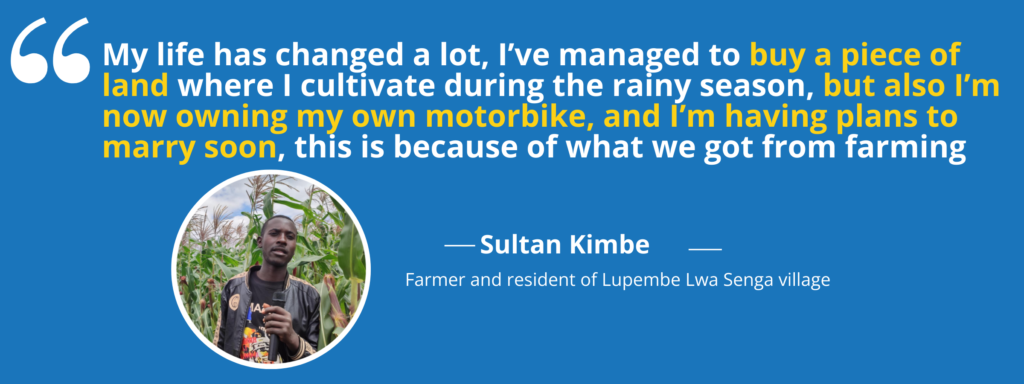
A boost for women
For women who have been disadvantaged in using technology in farming, solar-powered water pumps have been a boost in all fronts to women such as Felista Uvambe, a farmer and resident of Lupembe Lwa Senga village.
Unlike colleagues in Songambele group, her group received a mobile solar-powered water pump which she said has transformed her life since they received it from Elico Foundation.
In this pump, solar panels are installed in a simply made in two-wheeled or three wheeled handcart fitted with an electric pump that pushes water from the water source to the farm for irrigation.
The pump, according to Felister, has more than doubled the productivity by increasing produce and saving irrigation time. The time saved is now used in other productive activities in the morning with their families.
“I remember I used to spend at least five hours irrigating my half-acre every day using buckets and sometimes you don’t finish the work because of fatigue but now I wait for the sun to rise and start irrigating my farm,” she said.
Due to the impact brought by solar powered pump Felista with her husband who is also a farmer they were able to build their new house using money they got after selling crops but also the money ensures availability of important needs at home.
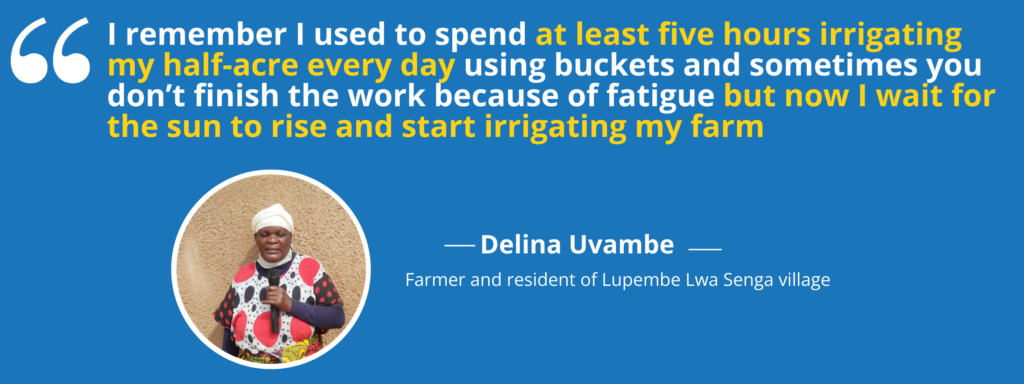
Aligning with government strategies
The support of Elico to irrigation farmers in Iringa not only benefits the farmers and the society around them but also is aligning with the government strategies to revamp irrigation agriculture in Tanzania.
According to the Ministry of Agriculture, Tanzania has more than 29.4 million hectares for sustainable irrigation activities but it is only 727,280.6 hectares equals to 2.5% of the area utilized.
In the year 2023/24 The Ministry of Agriculture allocated Sh373.5 billion equals to 38 percent of its budget for irrigation schemes aiming to have at least 1.2 million irrigation hectares up to 2025.
Minister of Agriculture Hussein Bashe while presenting the budget for his ministry for the year 2023/24 he told the members of parliament that through the National Irrigation Commission the ministry continues to construct and rehabilitate irrigation infrastructure in the country, including rainwater harvesting reservoirs for irrigation.
As of April 2023, he said the irrigated area was 727,280.6 hectares, equivalent to 60.6% of the target of 1,200,000 hectares by the year 2025.
“To ensure the achievement of this goal, the commission has continued to build and repair irrigation infrastructure planned for the fiscal year 2022/2023. By April 2023, a total of 48 construction and rehabilitation contracts for projects worth Sh234.1 billion have been signed,” Bashe Said.


